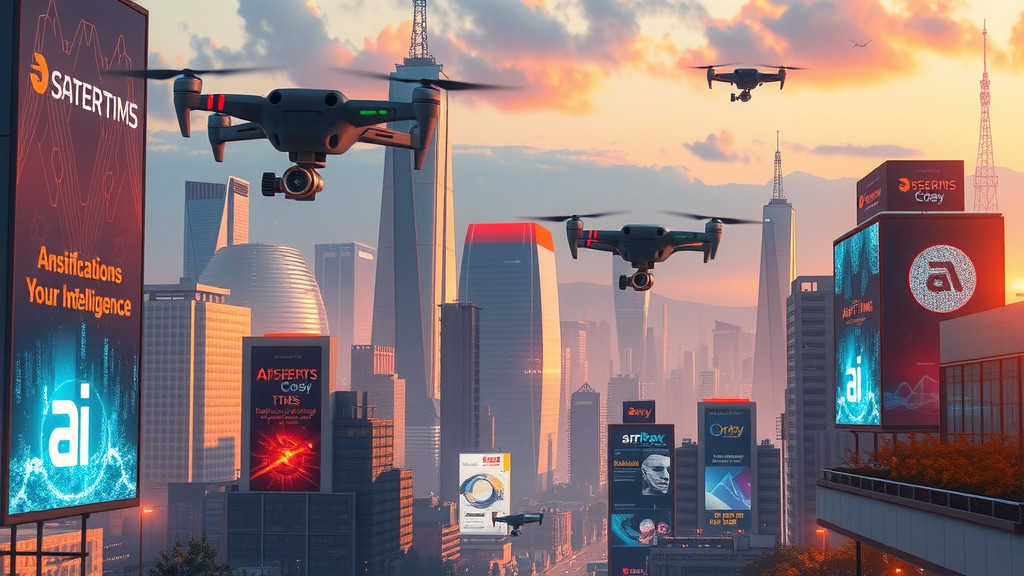As we reflect on the AI landscape of 2024, it's clear that this year has been marked by significant advancements, strategic shifts, and ongoing debates about the ethical and practical implications of artificial intelligence. From groundbreaking technological achievements to the complex dynamics of corporate partnerships and the integration of AI into democratic processes, the AI revolution continues to reshape our world in profound ways.
Nvidia's Strategic Shift Towards Cloud Provisioning
In 2024, Nvidia made headlines with its aggressive expansion into cloud services, nearly tripling its quarterly investment in cloud infrastructure. This move underscores Nvidia's strategic priority to offer AI-focused cloud solutions directly to end customers, bypassing traditional cloud providers like Amazon Web Services, Google Cloud Platform, Microsoft Azure, and Oracle Cloud Infrastructure. While these partnerships remain crucial, the future promises a competitive dance between these tech giants as they develop their own AI chips to reduce dependence on Nvidia.
Stability AI's Resilience Amid Challenges
Stability AI faced significant turmoil in 2024, with the departure of CEO Emad Mostaque and key personnel, leading to a perception of the company being 'in a death spiral.' Despite these setbacks, Stability AI managed to secure additional funding, hire a new CEO, and attract high-profile board members like filmmaker James Cameron. This resilience highlights the unpredictable nature of AI startups and the importance of adaptability in the face of financial and operational challenges.
OpenAI's Strategic Adjustments and AGI Ambitions
OpenAI's consideration to remove a provision blocking Microsoft from accessing its Artificial General Intelligence (AGI) technology marks a significant shift in its corporate strategy. This decision, driven by the need for continued funding and partnership, reflects the competitive landscape of the AI industry, where collaborations and access to cutting-edge technology are crucial for survival and growth. OpenAI's restructuring to become a public benefit corporation further underscores its commitment to balancing innovation with ethical considerations.
AI's Role in 2024's Global Elections
The 2024 elections, dubbed the first 'AI elections,' saw AI playing diverse roles from translating speeches to generating campaign materials. While concerns about deepfakes and misinformation loomed large, the actual impact was less catastrophic than anticipated. AI's constructive uses, such as enhancing voter engagement and improving campaign strategies, showcased its potential to support democratic processes responsibly. However, the opaque nature of AI's deployment within campaigns raises questions about transparency and accountability.
The Economic Impact and Future Potential of AI
The AI industry's economic potential is vast, with McKinsey forecasting up to $23 trillion in annual revenue by 2040. This growth is expected to benefit not only traditional tech stocks but also emerging meme coins like iDEGEN, which leverages AI for its operations. As AI adoption accelerates, the interplay between traditional finance and emerging crypto assets will be an area to watch closely.
Key Takeaways
- Nvidia's aggressive move into cloud services highlights the competitive dynamics in the AI ecosystem.
- Stability AI's survival amid internal turmoil underscores the resilience of AI startups.
- OpenAI's strategic adjustments reflect the complex balance between innovation and ethical considerations.
- AI's role in global elections demonstrated both its potential and the need for transparency.
- The economic potential of AI will drive significant investments and innovations in the coming years.
As we look ahead to 2025, the AI landscape promises continued innovation and challenges, making it a critical area of focus for technologists, policymakers, and society at large.
